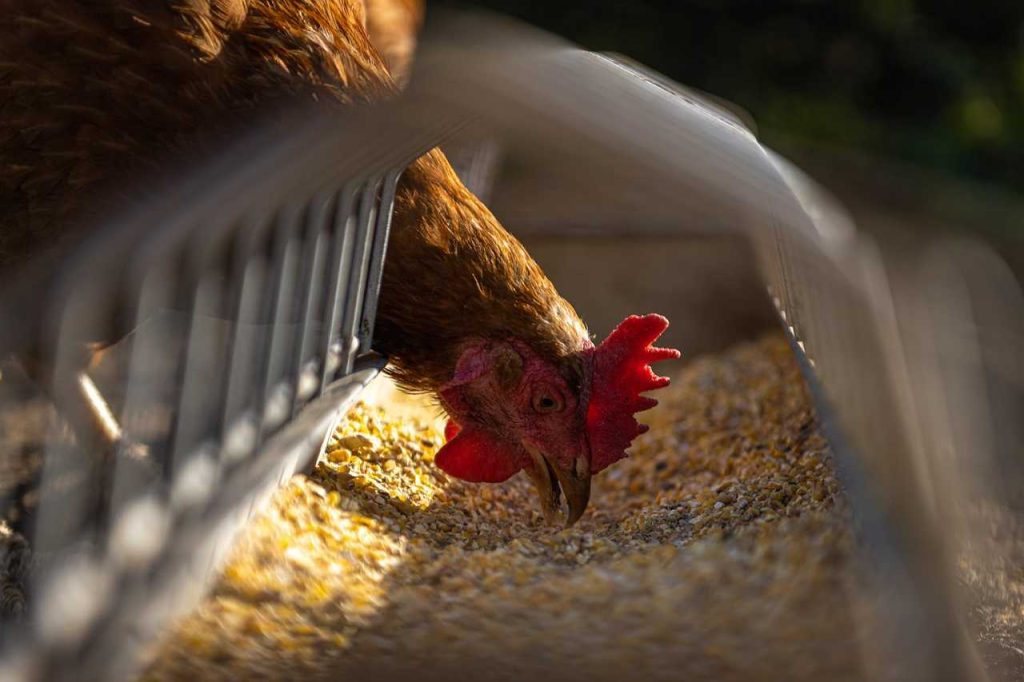Raising chickens in urban areas is becoming an increasingly popular trend among city dwellers looking to embrace a sustainable lifestyle, enjoy fresh eggs, and connect with nature. Whether you’re a seasoned farmer or a curious beginner, this ultimate guide will provide you with everything you need to know about raising chickens in an urban setting. From understanding local regulations to choosing the right breeds and creating a comfortable coop, let’s dive in!

1. Check Local Regulations
Before you start your chicken-raising journey, it’s essential to familiarize yourself with local laws and regulations regarding poultry ownership. Many cities have specific zoning laws that dictate how many chickens you can keep, whether roosters are allowed, and the required distance from neighbors. Here are steps to take:
- Research Local Ordinances: Check your city’s website or contact local authorities to understand the rules in your area.
- Consider Neighbors: Even if chickens are allowed, consider how your neighbors might feel about your new pets. Good relationships can help alleviate concerns about noise or odors.
- Obtain Permits: If required, apply for any necessary permits to keep chickens.
2. Choose the Right Breed
Selecting the right chicken breed is crucial for urban farming success. Consider factors such as egg production, temperament, and space requirements. Here are some popular breeds well-suited for urban environments:
- Rhode Island Reds: Hardy and excellent egg layers, they adapt well to confined spaces.
- Leghorns: Known for their high egg production, Leghorns are active and friendly.
- Silkies: These small, friendly birds are great for families and have unique fluffy feathers.
- Plymouth Rocks: Gentle and easy to handle, they are good for both meat and egg production.
3. Setting Up the Coop
A well-designed coop is essential for the health and happiness of your chickens. Here’s what you need to consider when building or purchasing a coop:
Size and Space
- Space Requirements: Each chicken needs at least 2-4 square feet of space inside the coop and 8-10 square feet in an outdoor run. Ensure there’s enough room for all your birds to move comfortably.
Security
- Predator-Proofing: Urban areas can have various predators, such as raccoons, stray dogs, and even hawks. Use sturdy materials and secure the coop and run to prevent unwanted visitors.
Ventilation and Light
- Airflow: Good ventilation helps regulate temperature and keeps the coop dry. Incorporate windows or vents that can be opened and closed as needed.
- Lighting: Chickens require around 14 hours of light per day to lay eggs consistently. Consider adding a light source if your coop lacks natural light.
Nesting Boxes and Perches
- Nesting Boxes: Provide one nesting box for every three hens, filled with straw or wood shavings for comfort.
- Perches: Chickens like to roost at night, so include perches that are higher than the nesting boxes.
4. Feeding and Nutrition
Feeding your chickens a balanced diet is key to their health and productivity. Here are some tips:
- Commercial Feed: Invest in high-quality layer feed that contains essential nutrients, vitamins, and minerals. This should make up the bulk of their diet.
- Treats and Scraps: Chickens love fruits, vegetables, and kitchen scraps, but make sure these treats make up no more than 10-20% of their diet. Avoid feeding them onions, chocolate, or citrus fruits, as these can be harmful.
- Fresh Water: Always provide clean, fresh water. Consider using a waterer that prevents contamination and is easy to refill.

5. Health and Care
Maintaining your chickens’ health is crucial for a productive flock. Here’s how to keep your chickens happy and healthy:
- Regular Check-Ups: Observe your chickens daily for signs of illness, such as lethargy, unusual droppings, or a lack of appetite.
- Vaccinations: Consult a veterinarian about necessary vaccinations and preventive care.
- Clean Living Environment: Regularly clean the coop and replace bedding to reduce the risk of diseases. This also helps minimize odors.
6. Socialization and Handling
Chickens are social animals that benefit from interaction with both humans and other chickens. Here are some tips for socializing your flock:
- Spend Time with Your Chickens: Handle your birds regularly to build trust and reduce stress.
- Introduce New Birds Carefully: If you want to add to your flock, introduce new chickens gradually to avoid aggression.
7. Egg Production
One of the main reasons for raising chickens is, of course, the fresh eggs! Here’s what to expect regarding egg production:
- Laying Age: Most hens start laying eggs around 5-6 months old. Egg production will vary based on breed, season, and individual health.
- Winter Laying: Egg production may decline during winter months due to shorter daylight hours. Supplementing with artificial light can help maintain egg production.
8. Dealing with Neighbors
Even with the best intentions, some neighbors might be hesitant about your new flock. Here are some ways to foster goodwill:
- Communicate: Let your neighbors know about your plans and share the benefits of keeping chickens, such as pest control and fresh eggs.
- Offer Eggs: If possible, share some fresh eggs with your neighbors as a peace offering. This gesture can go a long way in building a positive relationship.
9. Harvesting Eggs
Collecting eggs is one of the most rewarding parts of raising chickens. Here’s how to do it:
- Daily Collection: Collect eggs daily to ensure freshness and to prevent hens from pecking at them.
- Storage: Store eggs in a cool, dry place. Fresh eggs can be kept at room temperature for several weeks.
10. Enjoy the Benefits
Raising chickens in urban areas can be incredibly rewarding. You’ll enjoy the benefits of fresh eggs, reduced food waste, and a deeper connection to your food source. Additionally, having chickens can be a great educational experience for children, teaching them responsibility and empathy towards animals.
Conclusion
Raising chickens in urban areas is not only possible but can be a fulfilling endeavor. By understanding local regulations, choosing the right breed, setting up a comfortable coop, and caring for your flock, you can enjoy the many benefits that come with chicken ownership. So, gather your supplies, build your coop, and get ready to embark on a rewarding journey into urban chicken farming! Whether for fresh eggs or companionship, chickens can enrich your life in numerous ways. Happy chicken-keeping!




